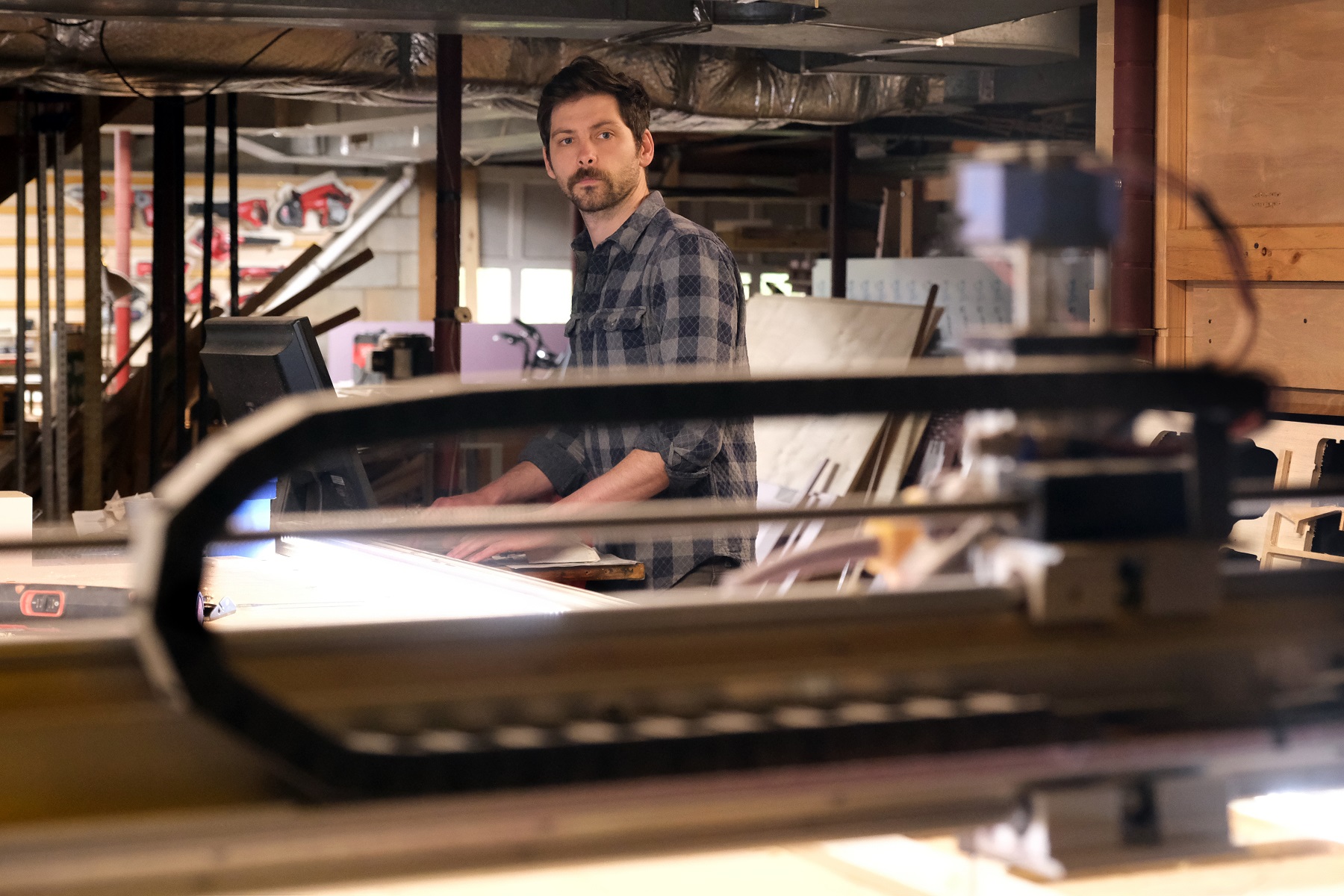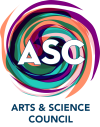Minimalist Approach and Repetition Shape ASC Fellow Matthew Steele's Artwork

By Michael Solender
Stuck in snarling Charlotte late-day traffic is not a place where most of us contemplate the elemental beauty found in a string of massive gas tankers perched atop flatbed railcars crossing our path.
Yet, that’s precisely where artist and graphic designer Matthew Steele took inspiration recently as he patiently waited for the train carrying the bulbous storage vessels to clear the intersection which brought his car – and many others – to a standstill.
“I couldn’t help but admire the beautiful and seamless pill-shaped tanks with their tempered edges and striking form,” said Steele, who noted he often experiences engineered work in similar ways that others engage with a painting. “The things we create are reflections of ourselves and our desires. I’ve always been drawn to structural shapes, how space is organized and what people are empowered to do within that space.”
Steele adopts a minimalist approach in his structural pieces, often limiting the components he uses to create his work as he seeks to build connections among the materials to express his artistry.
“I give myself as few variables as possible,” said Steele in describing his creation process. “What’s of special interest to me is to realize the potential found in the relationships within the form and process.”
Steele’s “Suspended” series, a collection of tools and functional items such as a scythe, baseball bat and rifle minimally altered with drilled holes and supported by stable copper rods, is an illustration of his limited approach.
“This series is a re-examination of objects associated with Americana,” he said. “The objects themselves utilize the aesthetic of function, they show you how they work and demonstrate their purpose or role.”
By merely drilling holes and bringing in the sole material of copper rods, Steele’s influence on the objects invites viewers to explore how nostalgia can skew judgment and how history’s malleability can alter and reframe the future.
Steele has made an impact in Charlotte-Mecklenburg since arriving here in 2012, when he was selected for an artist residency at The McColl Center. His work has been shown at The Mint Museum, Hodges Taylor, the University of North Carolina at Charlotte, Central Piedmont Community College, Winthrop University and Goodyear Arts, where he is a member of the artists collective.
He’s also exhibited at Miami’s Locus Projects, The Sculpture Center in Cleveland and has his work featured in collections at AXA, Marriott, Honeywell, TIAA, Art in Embassies, the Haan Collection, and Charlotte Skin and Laser. He holds a BFA in sculpture from Indiana University.
Steele is delighted to be a recipient of a 2022 ASC Emerging Creators Fellowship and has used the support towards studio enhancements and equipment upgrades that allow him to expand his work. He’s had his CN router – a large computer-controlled cutting machine – reprogramed to accommodate drawing tools and “fool” the machine into thinking its cutting when it is drawing on special paper.
Intimate creation
“There are perfect parallels between graphic design (Steele’s background) and woodworking,” Steele said. “I’m using my router to experiment with different materials and processes to create unique artworks on paper. Most often, this involves using my machine to hold traditional mark-making devices to apply graphite and ink to paper.”
Steele said the physical nature of repetitive motion, even when machine made, creates an effect that is far more personal than a printed work.
“All art is a relic of performance,” he said. “It’s in that performative element where intimate creation takes place.”
ASC’s support is also helpful with studio lighting upgrades as Steele ramps up his design and fabrication work for public artwork he’s been commissioned by ASC to create as part of the City of Charlotte-funded J.W. Clay Boulevard Streetscape project in the University City area.
The streetscape improvements will include connectivity to the Barton Creek Greenway and provide University City residents with greater access to existing greenway trail. Steele, who lives in University City, will work with residents and community stakeholders to create impactful public art that unifies the streetscape and connects to the historical and cultural context of the University City area. His artwork is anticipated to be installed by late 2024.
“My work relies on knowing how the process is going to work,” he said. “I often wander into it like a child and through experimentation and innocent approach, I arrive at what works.”

